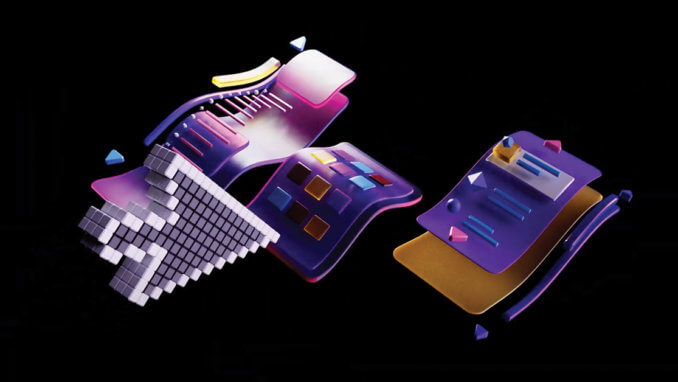Bachelor of Computer Science
TURN YOUR TECHNICAL TALENTS INTO A THRIVING CAREER
Units x Costs ($AUD)
16 x $2,728
4 x $3,807
2 x $5,456
Indicative Annual Course Fee*
(based on 1.0 EFTSL)
$26,140 AUD Year 1
$21,824 AUD Year 2
$21,824 AUD Year 3
Plus Student Services and Amenities Fee (SSAF)
* The Indicative Annual Course Fee reflects that students are charged fees on a per unit basis and the fee for a unit may increase.
For more information view the SAE Fee Schedule or visit the Fees & Payment page.
Units x Costs ($AUD)
16 x $3,178
4 x $4,439
2 x $6,356
Indicative Annual Course Fee*
(based on 1.0 EFTSL)
$30,468 AUD Year 1
$25,424 AUD Year 2
$25,424 AUD Year 3
Plus Student Services and Amenities Fee (SSAF)
* The Indicative Annual Course Fee reflects that students are charged fees on a per unit basis and the fee for a unit may increase.
For more information view the SAE Fee Schedule or visit the Fees & Payment page.
Complete your course faster by studying units across 2 years (6 trimesters).
Complete your course faster by studying units across 2 years (6 trimesters).
Complete the study units across 2.5 years (8 trimesters).
February 2025
May 2025
September 2025
February 2025
May 2025
September 2025
February 2025
May 2025
September 2025
BACHELOR OF COMPUTER SCIENCE
Master your craft in programming, networks, web development, cloud computing and AI with SAE’s dynamic Bachelor of Computer Science.
As a student of Computer Science at SAE University College, you’ll learn in small classes with one-on-one mentoring opportunities not often found in larger universities. Guided by our industry experts, you’ll learn to apply theoretical knowledge and current best practices while utilising cutting-edge virtual machines.
Develop in-demand skills in programming languages such as Python, C++, and Java, and software and tools including Git, Unity, Maya and Kubernetes. In addition to your core units, you’ll choose from a pool of electives to develop a specialisation in one of four areas: Games Programming, Software Development, Cyber Security or Web Development.
Your growth and development as a technology-driven computer science practitioner will be assessed through the completion of industry-based projects. This will ultimately help you build up a body of work and portfolio to share with potential employers or your first client.
In preparation for an industry that commands technical skill, agility and adaptability, you’ll cut your technical teeth on projects with your course peers. As your skills develop and you work on more dynamic projects, you’ll apply your capabilities to cross-discipline projects in Computer Science, VFX, Film, Games and Animation. By the end of your course, you’ll be given the opportunity to collaborate with fellow students across all SAE disciplines.
Ultimately, the Bachelor of Computer Science will enhance your career prospects in an ever-evolving industry. You’ll undertake professional work placement opportunities as part of your degree, where you’ll put your technical skills in practice and build your professional network. We’ll also equip you with critical employability skills including strategies for problem-solving, communication and self-promotion.
With a Bachelor of Computer Science, you’ll be ready for cutting-edge industry roles using modern computer science concepts and strategies. Career options include Software Engineer, App Developer, Gameplay and Engine Programmer, Systems Engineer, Security Analyst, and ICT Consultant.
Start your journey towards an exciting and varied career in Computer Science today at SAE University College.
CAREER OUTCOMES
GAMES PROGRAMMING SPECIALISATION
- Games Programmer
- Games Engine Programmer
- Mobile Game Developer
- AI Programmer
SOFTWARE ENGINEERING SPECIALISATION
- Software Engineer
- Mobile App Developer
- Systems Engineer
- Security Engineer
CYBER SECURITY SPECIALISATION
- Security Architect
- Incident Responder
- Digital Forensics Investigator
- Cyber Threat Intelligence Analyst
WEB DEVELOPMENT SPECIALISATION
- Full Stack Developer
- Front-End Developer
- Back-End Developer
- DevOps Engineer

WHAT OUR STUDENTS SAY ABOUT SAE
SAE BACHELOR OF COMPUTER SCIENCE OFFERS:

YOUR CAREER IN COMPUTER SCIENCE BEGINS NOW
Tools & Software
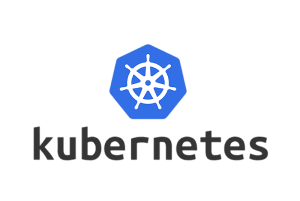
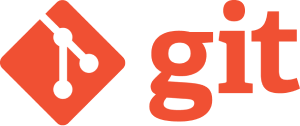
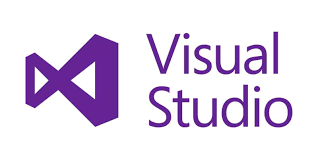


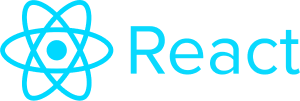
COMPUTER SCIENCE SKILLS
Course Structure
The Bachelor of Computer Science is broken up into three distinct stages, each designed to develop different skills. This course allows you to choose from a pool of electives throughout your studies and will see you develop a specialisation in one of four areas: Games Programming, Software Development, Cyber Security or Web Development.This subject serves as your gateway to understanding how humans and computers interact effectively. Here, you will explore the fundamental principles of HCI that underpin all user interfaces, from the ones on your phone to complex software applications. We will delve into various interaction methods, including traditional desktop interfaces, mobile technologies, and even emerging concepts like tangible objects and ambient displays.
Scripting and automation concepts are core to computing disciplines. In the cyber security context, scripting and automation is used in numerous ways, from secure software development, through to software defined networks, and Development Security Operations. You will experience a practical approach to scripting and automation, focusing on the development of scripts and the integration of these scripts with common security and business applications to automate security, networking, and other processes. You will use Python, a popular scripting and automation language widely used in the cyber security industry, and Powershell, a powerful scripting language used as a command shell, a scripting language and for configuration management.
This unit explores the concepts of entrepreneurship, innovation and project design. You will develop approaches to identify promising opportunities and actionable strategies to transform them into tangible successes. Through exposure to developing new ideas, processes and ways of working - both individually and in entrepreneurial teams - you will hone skills to put creative ideas into practice and achieve real-world impact.
As Alan Kay explained, "The best way to predict the future is to create it", so let's get at it!
This unit focuses on the fundamental knowledge and skills required by all IT professionals. You will explore basic IT concepts and terminology as well as the hardware and software elements that form the basis of systems from personal computing through to enterprise level. You will also explore how software is developed and used, and the collection, storage and use of data. All these topics will be viewed through a cyber security lens and the unit will conclude by considering the field of cyber security as a holistic discipline.
Modern personal and enterprise computing relies on internetworked systems. Understanding the basis of how systems are networked and how information is transported is essential to cyber security. This unit explores fundamental networking concepts, how networks are managed, and how they are secured. You will use network simulation tools to build simple and complex networks and will be introduced to important diagnostic tools and techniques.
This unit equips you with the foundational knowledge and practical skills to navigate the intricate world of data structures and algorithms. You will explore fundamental structures like arrays, linked lists, stacks, and queues, along with their strengths, weaknesses, and real-world applications. Delve into advanced structures such as trees and graphs, used to represent hierarchical relationships and network connections, and explore essential algorithms for sorting (e.g. selection sort, merge sort), searching (e.g. linear search, binary search), and graph traversal.
This unit serves as your launchpad into the world of creating software applications. You'll unveil the secrets behind the technology you use every day and gain the fundamental skills to build your own programs. We will delve into the core concepts of procedural programming, where you will learn how to break down problems into step-by-step instructions that computers can understand. This foundation will then be expanded upon as we explore the power of object-oriented programming (OOP), a more structured and efficient approach to building complex software. The unit adopts a hands-on learning approach, where you will actively apply your knowledge through engaging projects.
This unit will introduce you to foundational knowledge and skills for web development which will be useful throughout your studies and career in computer science. You will learn foundational concepts, principles and skill in web development. We will delve into the core concepts of the Document Object Model (DOM), Hyper Text Markup Language (HTML) and its companion Cascading Style Sheets (CSS), and an industry-standard programming language for websites: Javascript. Explore concepts of web design theories and practices including web servers, web databases, web domains, Content Management Systems, web design, web layout, responsive web design, functionality and usability.
This unit is about the relationship between Systems Thinking and Design Thinking. Throughout the unit, students will explore the role of Design in Systems Thinking and how looking at the world through a systems lens influences the design of effective, conceptual solutions. Students will engage in discussions concerning the critical concepts developed in the Systems and Design Thinking fields, their underlying assumptions, and the ways in which they can be integrated as a cohesive conceptual framework.
Through a combination of theoretical exploration and practical application, you will engage with current literature, exploring relevant research articles, papers, and case studies in the field. By critically analysing existing work, you will develop a solid understanding of the current state of computing technology enabling you to contextualise your investigations within broader societal, ethical, and environmental contexts. Ethical behaviour is paramount in technology development and you will explore ethical frameworks, professional codes of conduct, and legal responsibilities to be equipped to make informed decisions that align with societal values.
This unit will include a hands-on approach to learning technical skills and knowledge about hardware, electronics and networking components. You will learn how to construct and repair components in addition to learning the craft of wiring and soldering. Throughout this unit, you will also learn and practise how to work safely and use safety equipment.
Game development is a long and complicated process. But how do game developers know what ideas to pursue and which ones to give up? This is why we develop rapid prototypes: to test a theory or idea before we lose months or years of time to a concept that is simply too challenging to develop to the standard we desire. These prototypes are created purely to test a concept or tool. They are developed, analysed, and disposed of once we have learned what we can from them.
This course introduces students to the dynamic field of cloud computing. Through a blend of theoretical understanding and hands-on practice, students will grasp the basics of cloud computing, including virtualisation, service models (IaaS, PaaS, SaaS), and the principles driving cloud adoption. Using platforms like AWS, Azure, or Google Cloud, students will learn to provision virtual machines, configure networking, and manage storage. They’ll delve into cloud security, covering identity management, encryption, and compliance. Additionally, leveraging microservices, containers (e.g., Docker, Kubernetes), and serverless computing (e.g., AWS Lambda), students will design and implement scalable, resilient, and cost-effective cloud-native solutions.
This unit will provide the opportunity to learn theoretical and practical aspects to project management and leadership. Throughout this unit, you will work collaboratively to define, create and evaluate a project. Your lecturer will play the role of mentor and supervisor to help guide you and your team to navigate your project. This unit will provide you with opportunities to work with your colleagues so that you can contribute to a capstone project for your degree.
Commercial Production Studio walks you through the early stages of an independent production process, from finding a viable market, to pitching a concept or idea to a potential investing audience. The unit addresses the skills needed to research a market, create a concept to address needs and wants, and convey that concept to an external stakeholder.
This unit will explore AI literature, tools and techniques in order to understand aspects of the use of AI, research into AI, ethical considerations, social impacts and the theories of creating and manipulating AI tools. The unit adopts a hands-on learning approach, where you will actively apply your knowledge through engaging projects and discussions.
The transition from study to work is an important step for you as an emerging professional in the creative industries. Work Integrated Learning provides you with a professional experience opportunity that both complements and deepens the skills and knowledge you have gained from study. Placement requires a minimum of 80 hours at one or more host organisations.
This advanced unit empowers you with a strong foundation in C# and C++ programming to create custom plugins for the industry-leading game engines, Unity and Unreal Engine. Delve into techniques and concepts required to craft high-quality plugins that address various game development needs. Explore the fundamental architecture of both Unity and Unreal Engine plugins, along with APIs (Application Programming Interfaces) that act as communication channels between your plugin and the engine.
This unit delves into the design and implementation of Artificial Intelligence (AI) specifically for video games. You will explore core game AI concepts, algorithms, and techniques used to create intelligent and believable behaviours for Non-Player Characters (NPCs) and other in-game entities. The unit will cover topics like pathfinding, decision-making, planners, and character animation to bring your game world to life.
Have you ever dreamt of building a game where you can challenge your friends or players worldwide? Networking and Multiplayer Systems is your launchpad! We will equip you with the essential skills to create the backbone of any multiplayer game. You will master network protocols, conquer latency, and ensure smooth data flow for a responsive and engaging experience. We will delve into client-server communication, unravel the mysteries of game state management, and empower you to write code that transmits game information efficiently.
Are you ready to take your game design skills to the next level? This unit delves into the power of games for more than just entertainment. We will explore the invigorating world of Applied Game Design, with a subcontext of meaningful application, where you will learn how to craft engaging experiences that not only entertain but also achieve specific goals for players, such as education, training, or social impact.
Dive into the world of advanced algorithms, the workhorses behind automation and machine learning. You'll learn how to analyse these algorithms for efficiency and choose the right tool for the job. We'll also explore how to integrate machine learning algorithms into your software, allowing your programs to learn and adapt. This opens up a world of possibilities, from automating repetitive tasks to building software that can predict future trends. Finally, you'll master the art of data visualisation, transforming complex data into clear and compelling stories - you will showcase your findings with interactive charts and graphs, making data analysis accessible to everyone.
Are you ready to transform from a software consumer to a software creator? Get ready to tackle real-world challenges head-on in this project-based unit. We'll provide a curated selection of project themes inspired by what's happening in the industry. These themes could involve anything from building innovative mobile apps to designing user-friendly web platforms. The choice is yours! Throughout the unit, you'll work collaboratively in teams. Together, you'll analyse a chosen challenge, brainstorm creative solutions, and bring your ideas to life. This isn't just about coding – you'll hone your communication skills, master project planning, and learn how to work effectively as a team.
In this unit you will delve into the exciting world of mobile game development, building upon your existing knowledge of game design and scripting. You will learn effective mobile game programming techniques with a focus on design patterns, and work with powerful tools that can improve the efficiency, maintainability, and scalability of your code. This unit equips you with the skills and knowledge to embark on a successful journey as a mobile game developer, allowing you to create polished and engaging games that stand out from the crowd.
This unit covers the essential aspects of software testing and reliability engineering. Beginning with foundational principles, you will learn various testing techniques and how to design effective test cases and plans. You will develop practical skills through the execution of projects that focus on integration testing and regression test suite development. Later topics include software reliability engineering principles, statistical methods for analysis, and strategies for improving system reliability.
Embark on a thrilling journey into the unseen battlegrounds of the digital age. We will peel back the layers of cyberwarfare, uncovering the art and science behind digital espionage, weaponised code, and the ever-evolving tactics employed by attackers. Through a dynamic blend of learning methods, you will gain a comprehensive understanding of cyberwarfare. We will delve into the cryptographic principles that safeguard information, explore the tools used by cyber spies to infiltrate networks, and even participate in practical exercises that simulate real-world hacking scenarios.
In this unit you will learn techniques in gathering evidence of cyber security breaches from devices and how to conduct ethical hacking to analyse vulnerabilities - key skills used to assist law enforcement organisations to analyse and investigate digital evidence and crimes. You will develop skills and knowledge in digital evidence collection, analysis and reporting, and memory, operating system, email and network forensics.
This unit focuses on understanding and combating malware threats in computer systems and networks. Students will learn about various types of malware, including viruses, worms, Trojans, ransomware, and spyware. They will explore how these malicious programs infiltrate systems, compromise data, and disrupt network operations. Additionally, students will acquire practical skills to dissect and examine suspicious files and URLs using advanced analysis methods.
This subject equips you with the knowledge and skills to navigate the ever-evolving landscape of cyber security threats. You will delve into the fundamentals of network security, exploring various threats, vulnerabilities, and the countermeasures employed to safeguard networks. This subject is ideal for learners with a curiosity about cyber security and a desire to understand how networks are protected from malicious attacks. If you are passionate about safeguarding data and ensuring online security, this subject is the perfect gateway to your journey in this dynamic field!
In this unit, you will learn to understand the user or target audience as part of your design process through exploring UX (user experience) and UI (user interface) design. By applying UX design tools such as personas and user journeys and UI design such as prototyping, iterating and testing, you will explore creating websites or apps that provide an ideal user experience. Knowing how to do user research and design digital interfaces effectively is essential for a contemporary designer.
This unit covers the essential aspects of software testing and reliability engineering. Beginning with foundational principles, you will learn various testing techniques and how to design effective test cases and plans. You will develop practical skills through the execution of projects that focus on integration testing and regression test suite development. Later topics include software reliability engineering principles, statistical methods for analysis, and strategies for improving system reliability.
In this unit you will delve into the exciting world of mobile game development, building upon your existing knowledge of game design and scripting. You will learn effective mobile game programming techniques with a focus on design patterns, and work with powerful tools that can improve the efficiency, maintainability, and scalability of your code. This unit equips you with the skills and knowledge to embark on a successful journey as a mobile game developer, allowing you to create polished and engaging games that stand out from the crowd.
In order to become a ‘full stack’ web developer, you will need to be skilled at both front-end and back-end web development. Where ‘front-end’ web development focuses on the aspects of websites without a database, back-end web development focuses on the use and interaction of a website database. This unit will build upon prior learning in front-end web development, programming and databases. To further develop and refine your knowledge and skills in web development, this unit will delve further into the theories and practical applications of web development for dynamic websites that use database interaction in addition to asynchronous website dynamics using a combination of Javascript and PHP.
FEE‑HELP* is an Australian Government loan scheme that assists eligible fee paying students pay all or part of their tuition fees. It cannot be used for additional study costs such as accommodation or text books. The total amount of FEE‑HELP a person can use is known as the ‘FEE‑HELP limit’.
Once a person begins using FEE‑HELP, the amount of FEE‑HELP they have left to use is known as their ‘FEE‑HELP balance’.
* Terms and conditions apply. For the latest updates regarding FEE-HELP please refer to sae.edu.au/fees
You can choose to study most of our courses in a part-time capacity. An SAE course advisor will be able to give you more information about the study options for your chosen course.
Note: Part-time is not available for international students.
CREDIT AND RECOGNITION OF PRIOR LEARNING
SAE may recognise your prior learning and may grant credit towards satisfying the requirements for a higher-level program. This is applied where previous learning is considered equivalent to the content and learning outcomes prescribed for units within the program.
For full details, please refer to SAE's policy on recognition of prior learning and credit transfers.













